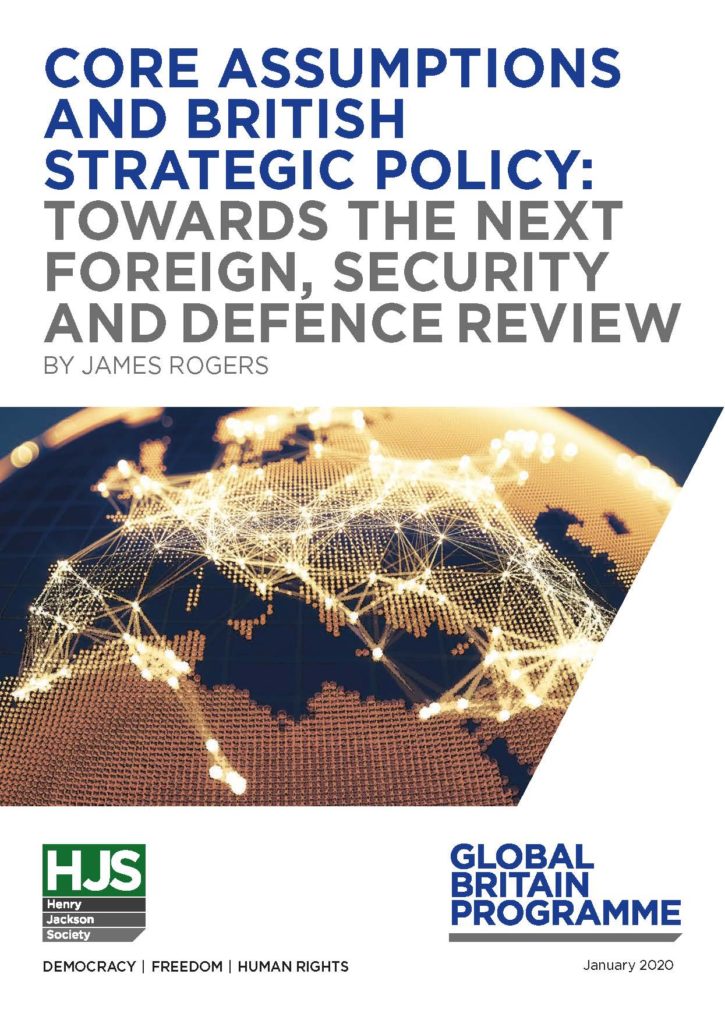SHOP
Core Assumptions and British Strategic Policy

"The harsh reality is that the world we find ourselves in as we enter the 2020s is almost entirely alien to the one at the dawn of the 1990s, making the principles that Number 10, the Foreign and Commonwealth Office and the Ministry of Defence are guided by progressively obsolete."
 |
In this Report, James Rogers, the Director of the Global Britain Programme, identifies the fifteen core assumptions that have underpinned British strategic policy since the end of the Cold War. He then goes on to explain why these assumptions are under increasing strain as great power competition takes hold and challenges the dominance of the West.
Informing what is described as Britain’s ‘global’ approach to strategic policy, the fifteen assumptions include the idea that: globalisation is an immutable and desirable force; the West will remain technologically dominant; liberalism and democracy will continue to spread; and that ‘Zones of chaos’ are the primary threat to Britain and its allies and partners.
The report’s assessment is that Britain’s core assumptions are either outdated, inaccurate or wholly erroneous. Indeed, in the foreword for the report, Sir Malcolm Rifkind, a former foreign and defence secretary, argues that the “principles that Number 10, the Foreign and Commonwealth Office, and the Ministry of Defence are guided by are progressively obsolete.”
It warns that each of Britain’s core assumptions requires urgent re-evaluation, particularly in light of the nexus between de-industrialisation, climate change and the emergence of powerful authoritarian states. Because of this, the report warns that a detour to strategic approaches like ‘compensationism’ or ‘isolationism’ is inadvisable.
In response to the new strategic environment, the report recommends that the government should:
- Embrace the need for substantial adaption;
- Acknowledge the nature of authoritarian competitors;
- Focus the power of the British union-state;
- Reassert intellectual and technological leadership;
- Reorder the institutions responsible for strategic policy;
- Recalibrate strategic resources, with boosts for diplomatic and military resources;
- Expand geographic horizons, particularly beyond Europe;
- Continuously test the core assumptions guiding British strategic policy.
The proposals come as the government conducts the “deepest review of Britain’s security, defence, and foreign policy since the end of the Cold War”.
Video
English
Pages: 42
Price:
9.95
(Inc. UK P&P)


